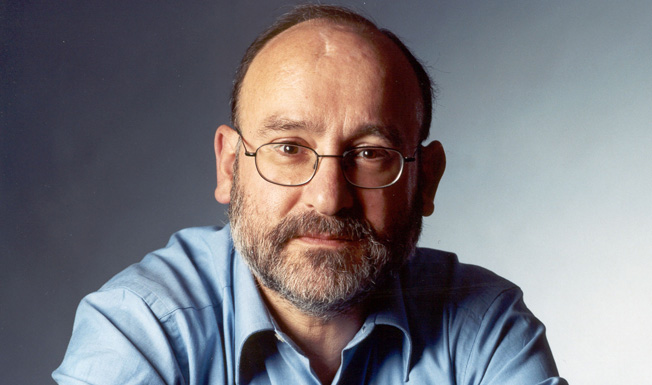Ekmeles singers find the physical beauty in Sciarrino’s spectral music

Ekmeles sang Salvatore Sciarrino’s haiku-inspired “12 Madrigali” on Thursday night at Crypt Chapel.
It can be hard sometimes to discern the actual qualities of the singing in modern and contemporary vocal music. The concept of the voice as a pure instrument and not a means for delivering a song — combined with avant-garde and extended techniques that carry the music farther into abstraction — will obscure how well a singer, you know, sings. As in their presentation of words and melodies.
This was not the case with Ekmeles, one of the leading ensembles in the vocal repertoire that was on offer Thursday night at Crypt Chapel of the Church of the Intercession. And this particular program — of (mostly) Italian language music of this century — was so well chosen that one heard the full range of their skills, customary pleasures of phrasing and articulation included. In this style of music, Ekmeles bring out a rare level of musical expression.
The main work was the U.S. premiere of Salvatore Sciarrino’s 12 Madrigali, paired with substantial music composed by Carola Bauckholt, Karola Obermüller, and Claus-Steffen Mahnkopf, all in a companionable setting. The reverberant, evocative space of the chapel venue — within a massive gothic church, itself separated from the city by its grounds and graveyard — seems to exist in a universe of its own. Even more than the architecture and geography, Sciarrino’s 12 Madrigali carved out an extra, deeper dimension of listening.
The composer’s unique sound world — whispers that grow out of silences, and timbres and pitches that rise out of those whispers — is unmistakable on the contemporary classical scene. Though it may sound vastly different than most anything else, it is fundamentally musical, with rising and falling shapes that build forms.
The 12 Madrigali are six haiku by Edo period Japanese poet Basho, multiplied by two as a pair of not quite identical Books — sung twice in Italian, in the same order, with musical variations from first to second. Ekmeles — six singers with a seventh, a countertenor, added for the madrigals — opened the concert with Book I and took up Book II after a brief interval occupied by the Obermüller and Bauckholt pieces.
This was Sciarrino expressed with an uncommon physical presence. Haunting and delicate, as it should be, the rounded quality of each sound and note from Ekmeles grounded Sciarrino in the ancient madrigal tradition, and brought a subtle, intimate force to music that often exists at a slight remove from the listener. Soprano Charlotte Mundy’s back-of-the-throat singing of some particular high notes had a gripping, blue dissonance.
The Madrigali created an aesthetic space into which all the other music was a natural fit. There was an expectant silence that prepared each work. Bauckholt’s Instinkt opened with complex, beautiful dissonant chords that gradually slid downward and morphed into multiphonic throat singing and then dog-like howls. Eventually, most of Ekmeles was singing through some kind of stretchy vellum, creating a warm buzzing — like humming through tissue wrapped around a comb. If the materials were experimental, the clear shape of the structures and form were easy to grasp, and the pure sound was mesmerizing and gorgeous.
Obermüller was in attendance for her mass:distance:time, and explained in her program note that this calculation of force was a symbol that gave her energy to compose. Her piece used straight pitches, but in disguise, hidden behind closed lips and hands covering the singers’ mouths. The music was a deliberate shadow of specific material, fragments from Giuseppe Ungaretti’s poetry and from the Kyrie of Guillaume de Machaut’s Messe de Nostre Dame. In a way this was the opposite of Sciarrino, who pulls sounds out of his own chiaroscuro, whereas Ekmeles held Obermüller’s force — a kind of driving need to say something — within the cloak she used to contain it.
After Sciarrino’s Book II, Ekmeles concluded the concert with Mahnkopf’s complex void – un delitto italiano. The title comes from an Italian film about the murder of filmmaker and poet Pier Paolo Pasolini; the composition itself is something of a conversation or argument, both external and internal. The music sets fragments from Pasolini’s poetry, some of which is spoken by Ekmeles.
Polyphonic, contrapuntal, floating somewhere between tonality, dissonance, and atonality, the music was dense, with a blunt impact. Even following the text in the program, the multiplicity of voices made it hard to pick out any particular line. In what was clearly a skillful performance, the first hearing of the music was an experience of agitation, intensity, and confusion, all honest ways to react to the tragic death of a great artist.
Ekmeles performs with New Chamber Ballet at City Center Studio 5, 7: 30 p.m., February 18. ekmeles.com


